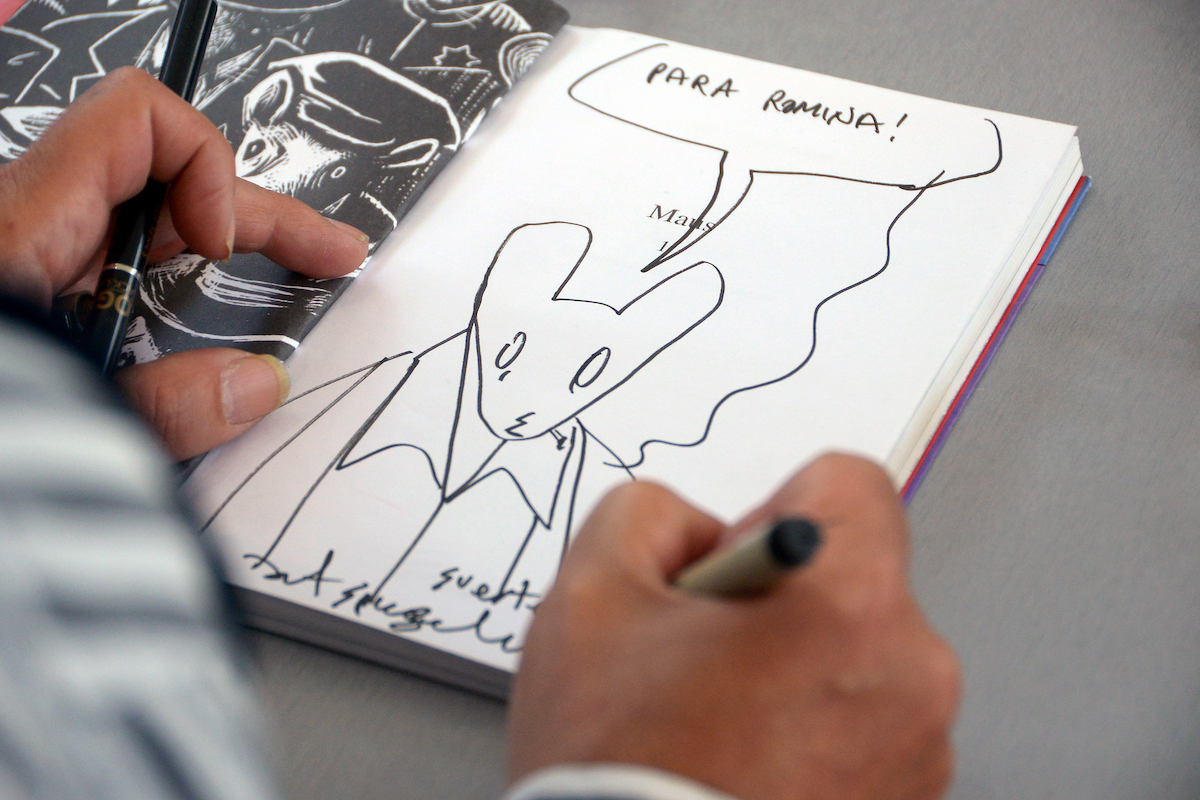Feng shui workshop
Portland State University’s Center for Urban Studies hosted “The Urban Planning and Landscape Design in Feng Shui,” on Friday. The workshop was presented by professor Thomas Lin-Yun, an international master of feng shui.
Speaking to a packed room of feng shui students and enthusiasts, Lin-Yun was introduced by Ann Marie Holmes, a consultant with Feng Shui and Earth Healing in Dexter, Ore. Describing the enfolding event as “a dream of mine for many years,” Holmes introduced the professor with a mention of his degrees in urban planning and law, and his expertise in feng shui.
The basic idea for the lecture was a continuum of the Chinese proverb that states that if there is order in the home, there is order in the nation. If there is order in the nation, there is peace on earth.
Lin-Yun then took the podium, remarking that whenever he held a microphone, he felt compelled to sing. He jokingly asked the audience if they would like that.
Beginning with a basic idea of feng shui and its descent from ancient Chinese history, Lin-Yun explained the different schools developed in China.
The Black-sect Buddhist Tantric School advocated by Lin-Yun is different from all of the other feng shui schools and theories. Describing his school as being the smallest and least influential, with unique theories, he emphasized that it remained open to all other traditional and conventional approaches.
Describing the main differences between the Black-sect Buddhist Tantric School and other feng shui schools, Lin-Yun explained that the school adopted modern knowledge that he considered instrumental when applied to daily life. He described the inclusion of spirituality into feng shui as the second major difference.
The main characteristic of Lin-Yun’s school is the concept of ch’i, or atmosphere, and the interconnection of three important elements: the cosmic ch’i, the earth ch’i and the individual ch’i.
Cosmic ch’i takes into account information gleaned from the sun, new moon, full moon, tidal waves and changes in weather, climate and seasonal changes. All natural phenomena have an impact on the earth and its people, Lin-Yun said.
Earth ch’i is the underground force of water that moves the forest underneath the surface of the earth. It is representative of the flow of energy. An infusion of extra water causes floods, and extra lava causes volcanoes.
If the flow of energy is close to the surface of the earth, it is considered as good feng shui and is habitable for humans, meeting all of the basic requirements for survival of all life forms. Conversely, if the flow of energy is away from the surface of the earth, it is considered as bad feng shui and makes for barren, useless land.
Describing Las Vegas as an ideal description of having turned bad feng shui into good feng shui by harnessing good energy into an otherwise barren land, Lin-Yun cautioned the audience that while this was probably not the original intention, it nevertheless coincided with feng shui principles.
For existing buildings, Lin-Yun offered several options to enhance feng shui, such as the addition of brighter lighting in the form of lamps, mirrors and faceted crystal balls; clear sounds; and items that exuded life force and vitality such as fish tanks, bonsai, plants, et cetera.
Dryness in barren areas drains energy and hurts development in cities. The addition of light, sound and color helps counter this and represents an exuberant life force.
Individual ch’i stresses the importance of one’s self as an individual to a city’s development. Yun described various personality traits of people, or individual ch’i, such as the talkative; the dreamers; the “porcupine,” who is always hurting others; the “bamboo,” who is stubborn; the depressed or “pre-suicide ch’i”; and the suspicious.
From the feng shui perspective, the individual ch’i and city planning can be harnessed by establishing public meeting places such as stadiums, meeting halls, recreation centers and culture centers to promote festive activities that that promote community spirit.
Lin-Yun ended his lecture with a reference to the lack of time but humorously advised the audience to consult his students with questions because they spoke better English than he did.
“As always, Professor Lin-Yun’s lecture was very valuable,” said Carol Smith, a long-time student of Yun’s. “He is a learned and spiritual man from whom I learn something new every time.”
“It has been a pleasure to bring this scholar with such a great knowledge,” said Ann Marie Holmes, one of the organizers of the lecture. “He has many interesting stories that are true-to-life experiences. Also, he is quite an authority in his field, and it is great to have him here.”
More information about Lin-Yun’s work can be accessed at www.yunlintemple.org.




